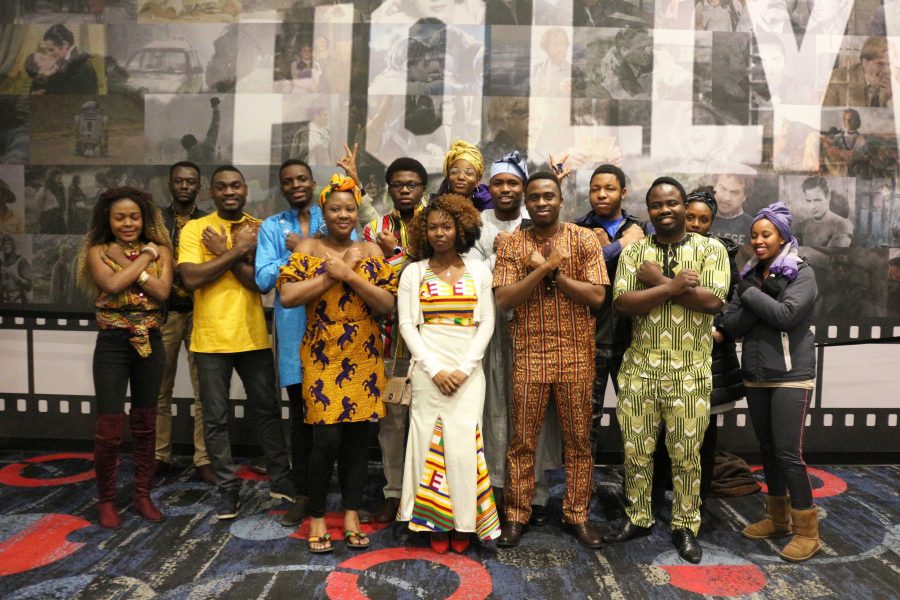This past weekend, “Black Panther” became the first film since 2009’s “Avatar” to hold the top spot at the American movie box office for five consecutive weeks. It’s also one of just 33 films to ever earn more than $1 billion at the worldwide box office.
It is also the first movie in the Marvel Cinematic Universe to feature a non-white lead in the title role. In addition, more than 90 percent of the movie’s cast is African or African American.
But beyond the barrier-breaking accomplishments of the film, “Black Panther” has also gotten the undivided attention of many from the African and black communities in Brookings and at SDSU.
David Odeleye, operations management graduate student from Oyo State in Nigeria, is the president of the African Students’ Association. He and 15 other members of ASA attended the movie, many of them dressed in traditional African attire.
“Walking into ‘Black Panther’ and seeing someone who looked like me, a superhero, even if it wasn’t shot in my country, I see how they were representing Nigeria and I was so excited about that,” Odeleye said. “It was really exciting for me.”
Odeleye has seen “Black Panther” three times since the film debuted five weeks ago. He said the film has also helped him adjust to life in America.
“When I first got here … I wanted to blend in with the way I spoke and the way I dressed so I wouldn’t stand out, so people wouldn’t look and think ‘oh, he’s foreign—he’s not from here,’” he said.
Laura Renée Chandler, assistant professor of history, believes now is the perfect time for “Black Panther.”
“For a really long time, I think we’ve been told that popular audiences, which usually means white audiences, are not going to go to films that are majority black, or they’re not going to go to films that are really driven by strong black characters,” she said. “In this sense, it just really dispels that narrative considering how much the movie has made.”
While much attention has been paid to the title character, the depiction of black women has been praised as well.
“They were all amazing,” said Excel Obi Okoro, junior political science major. “They could be sexy or strong or they could be beautiful or soft. There were different things to the power of a woman.”
Okoro, from Lagos, Nigeria, said the film could play a role in dispelling misconceptions about the continent of Africa as a whole.
During her freshman year, Okoro was asked where she got her tshirt and when she said it was from Nigeria, the girl was surprised.
“She asked if we had like shoes and things like that,” Okoro said. “I had to set her straight on how we have the same types of clothing as here [America], but I feel like the movie could actually teach people about that too, you know?”
“Black Panther” is breaking box office records and encouraging positive conversation within and about the African American community.
“…[T]hat movie gave me the opportunity to actually say, ‘hey, I stand out and I’m proud of it.’ That’s really exciting,” Odeleye said.


















